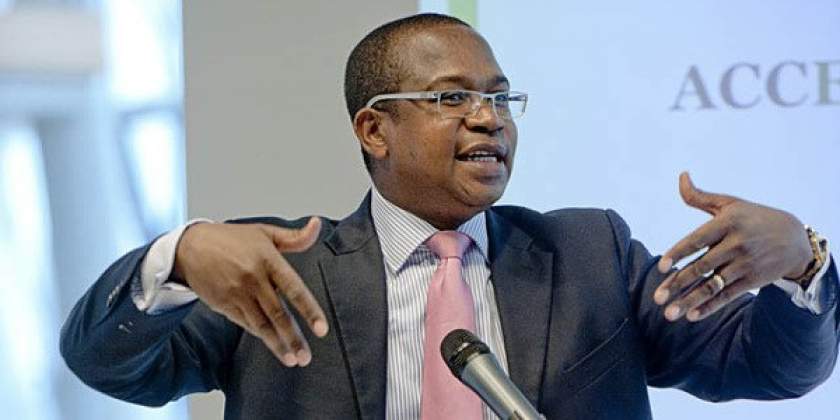
BY TATIRA ZWINOIRA
ZIMBABWEANS were yesterday thrown into fresh misery after Finance minister Mthuli Ncube stuck to his anti-people policies announced in the 2021 National Budget last November, saying he would not review tax-free thresholds to ameliorate deteriorating living standards.
Consumers have been overstretched by a sea of negative economic fundamentals with landlords demanding rent in United States dollars at a time when salaries are paid in the depreciating local currency.
The domestic currency has been extensively battered since January when it was trading at about US$1:$100, to current levels of about US$1:$140 on the dominant parallel market.
Zimbabweans spend more to purchase the greenback to pay for several requirements in foreign currency, including school fees and health care among other critical areas.
This crisis escalated in June, when government promulgated Statutory Instrument (SI) 127 of 2021, which unsettled business and triggered a 40% surge in US dollar prices, as terrified companies raced to protect their interests.
Yesterday’s policy review was expected to make changes to tax- free thresholds in line with rampaging costs.
But Ncube stuck to a $10 000 tax-free threshold announced in November, which is four times less than the poverty datum line of $40 682.
- Chamisa under fire over US$120K donation
- Mavhunga puts DeMbare into Chibuku quarterfinals
- Pension funds bet on Cabora Bassa oilfields
- Councils defy govt fire tender directive
Keep Reading
The Treasury boss said the economy was rebounding, thus there was no reason to shift policies.
“The measures put in place so far are working. There is no reason to change policies. Despite the ranging global pandemic, implementation of the National Development Strategy 1 through the 2021 National Budget remains on course, following a favourable farming season, recovery in manufacturing sector and firming international commodity prices,” he said at the end of his presentation.
“The COVID-19 response measures, coupled with the vaccination exercise currently underway globally and domestically, continue to give hope in sustaining the economic recovery. Now that the macroeconomic environment is stable, the government will continue to safeguard these gains to ensure improvement in the socio-economic wellbeing of citizens.”
But his decision not to hike the tax-free threshold placed consumers under extreme budgetary pressures as the majority of those employed still earn far less than the $40 682.
In addition, the majority of those eking a living through the informal sector have had their businesses closed as the fight to combat COVID-19 continues.
The World Bank last month estimated that about 500 000 workers had lost jobs in Zimbabwe due to pandemic-related problems since last year.
Ncube did not announce a supplementary budget.
Already, growing social needs and a ballooning cost of living forced him to increase civil servants compensation by 8,27% to $80 billion against a target of $73,8 billion in the first half of the year.
Economists said Ncube was determined to keep healthy revenues flowing into government coffers by not hiking tax-free thresholds, yet the implications of his policy would be dire on millions of people.
“In June alone, prices of goods and services rocketed by 40% in US dollars terms after government introduced Statutory Instrument 127 of 2021,” head of research at the advisory firm, Trade Winds Tapiwa Sibanda, said.
“This means that people’s spending power depreciated, and the mid-term policy review was the last hope for consumers. Unfortunately, in this case, he chose to protect government business at the expense of consumers. A review will only be expected in November. One hopes that inflation will continue to decline until then.”
Ncube reviewed the gross domestic product (GDP) target upwards to 7,8%, after predicting in November last year that the economy would expand by 7,4%.
The growth announced in the 2021 mid-term budget review will be anchored on a rebound in a string of key sectors including tourism, which he projected would expand by an ambitious 6,4%, despite being battered by a relentless COVID-19 pandemic.
The Treasury boss said the projection would also be anchored on positive spin-offs from a good agricultural season this year.
Bullish international mineral prices and the scaling up of a vaccination drive to combat the COVID-19 pandemic, which has held back spending power and precipitated job losses in the past year, would also underpin economic growth, the minister said.
“GDP growth for the year 2021 is projected to remain strong at 7,8%, slightly above the 2021 National Budget growth target of 7,4%,” Ncube told Parliament.
“The strong rebound of the economy is anchored on a better 2020/21 rainfall season, higher international mineral commodity prices, stable macroeconomic environment and managed COVID-19 pandemic.”
His growth projection are in line with the decelerating inflation rate, which slowed to 56% this month, after ending the year 2020 at about 336%.
- Follow Tatira on Twitter @tati_tatira











